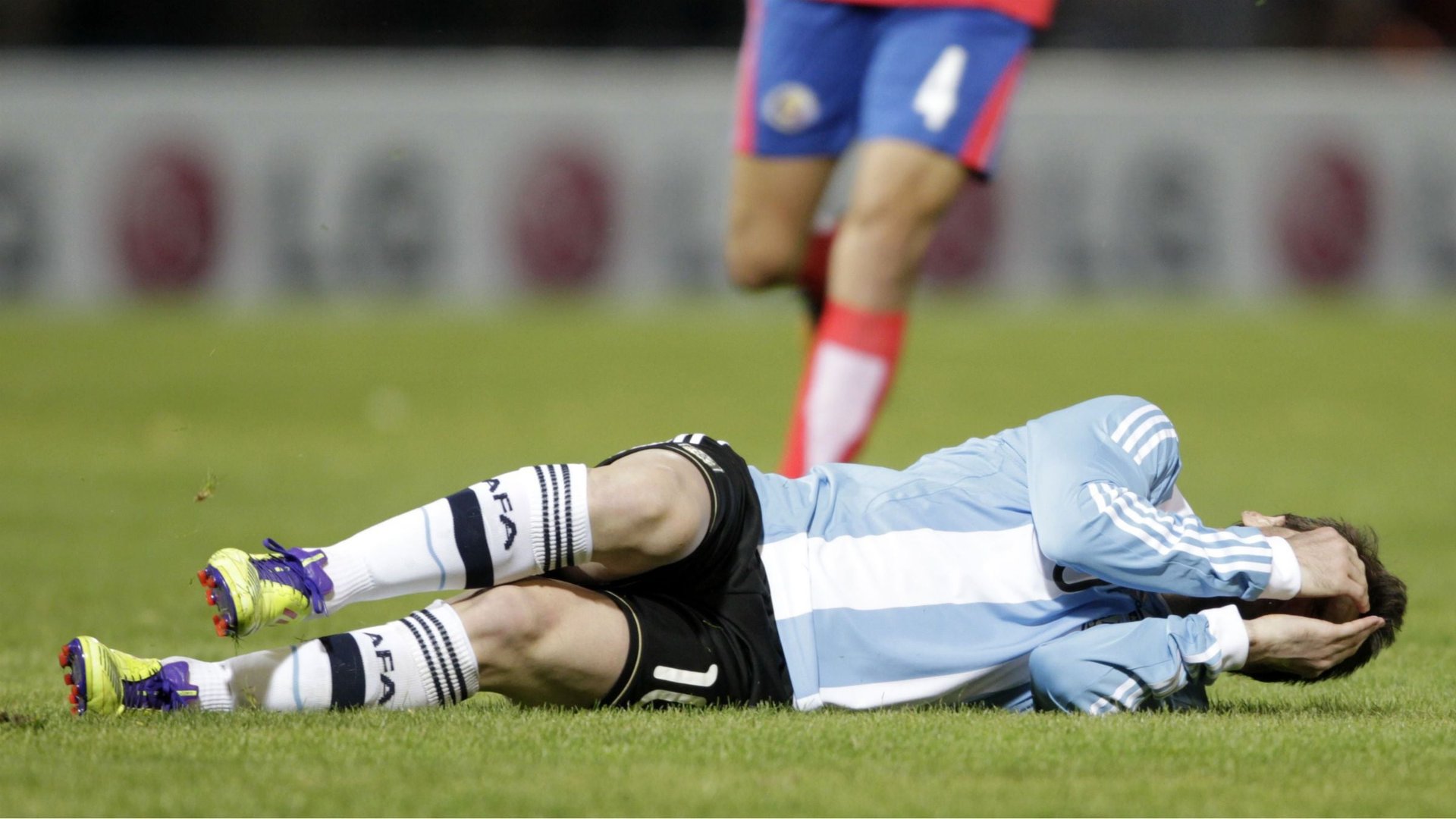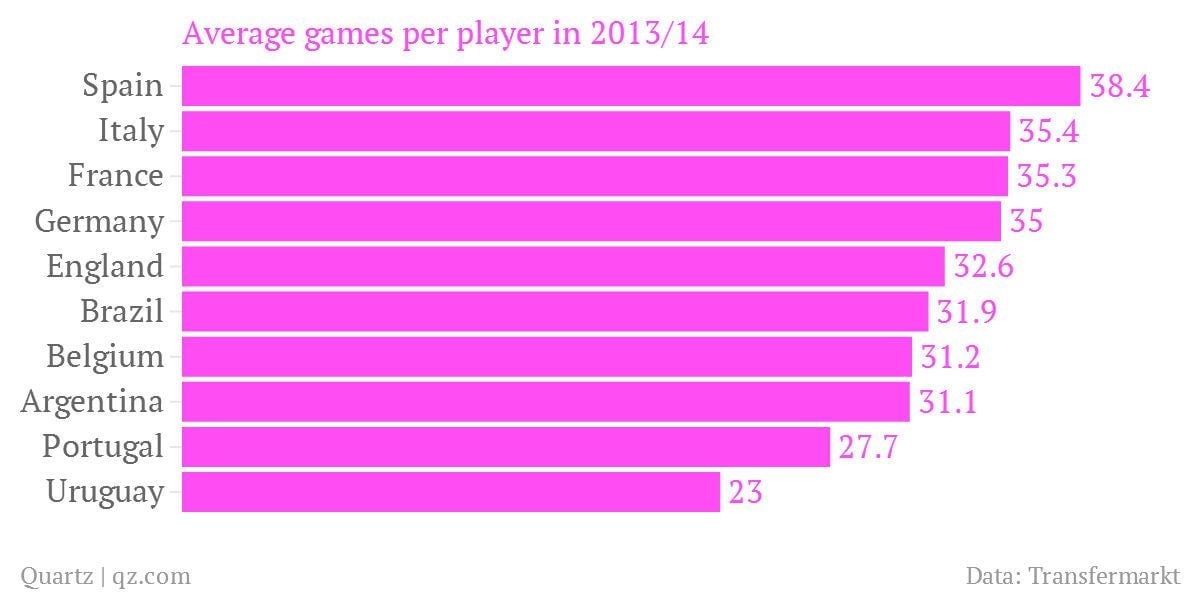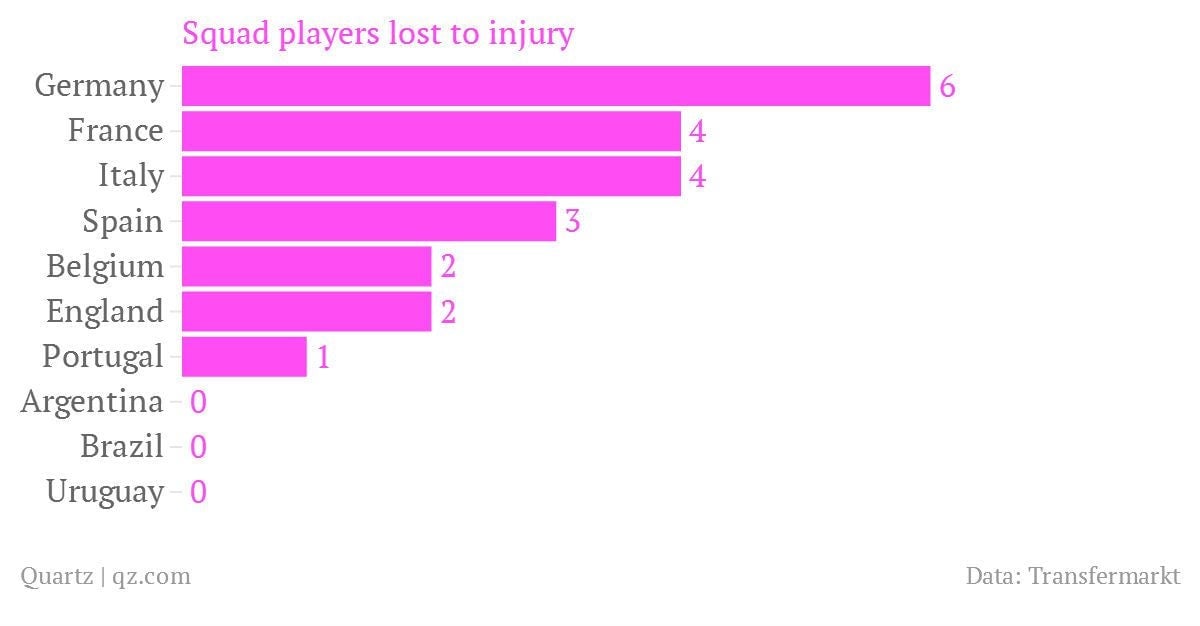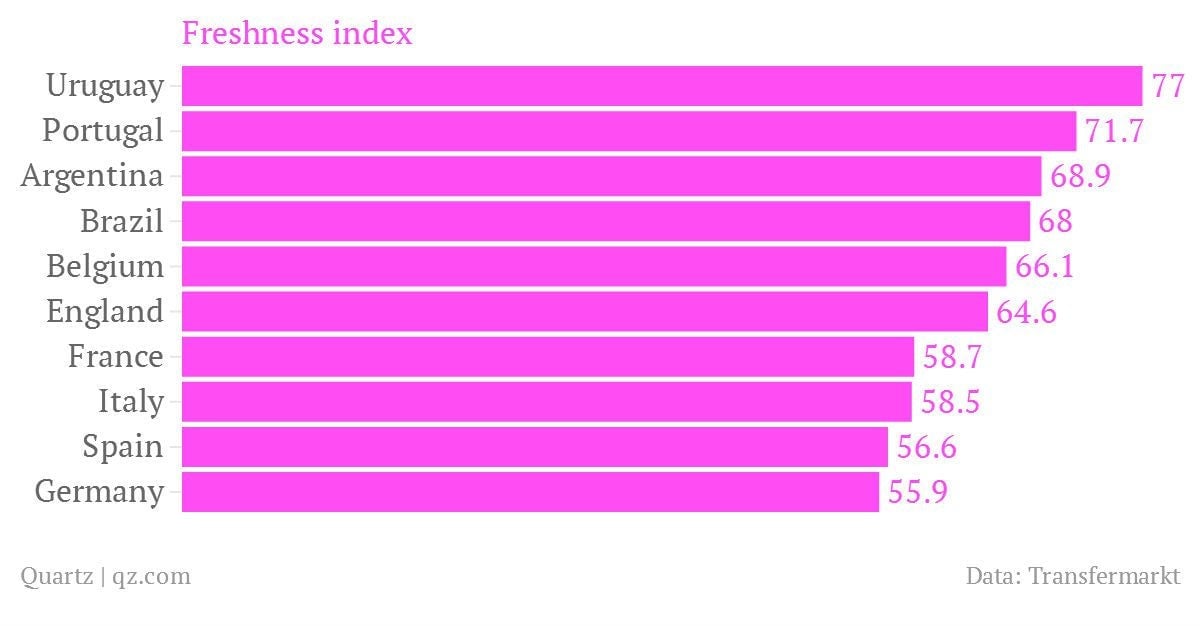The World Cup statistic nobody is talking about
For young Marco Reus, the World Cup ended before it had even begun. The same fate has also befallen a host of other injured stars: Radamel Falcao, Franck Ribery, Christian Benteke, Theo Walcott and Thiago Alcantara, among others. The loss of these players–and the condition of their teammates—will have an important bearing on the destination of the trophy.


For young Marco Reus, the World Cup ended before it had even begun. The same fate has also befallen a host of other injured stars: Radamel Falcao, Franck Ribery, Christian Benteke, Theo Walcott and Thiago Alcantara, among others. The loss of these players–and the condition of their teammates—will have an important bearing on the destination of the trophy.
Ahead of the start of the tournament in Brazil on June 12th, a host of bankers, consultants, financial journalists and insurers have attempted to show how numbers can predict sporting outcomes. Several, such as Goldman Sachs and Bloomberg have built sophisticated econometric models to determine the winner. Using a combination of factors such as previous results, recent form, proximity to Brazil and club attendances, a consensus has emerged that Brazil are rightfully the bookmakers’ favourites, and that Germany, Spain and Argentina all have reasons to be confident. Yet each of these models overlooks an important factor: the health of the teams.
It is a fallacy to assume that all of the teams will begin the tournament at full strength or peak condition. Domestic seasons generate a high level of variance in the amount of football played by each of the squads and the number of injuries that they collect along the way. Putting these factors together and it’s possible to calculate a “Freshness index” to see which of the bookmakers’ favorites are the healthiest as the World Cup begins.

The first chart displays the average number of full matches played by each member of the leading teams during their preceding seasons. The Uruguayans have played an average of 15 games fewer per player than the Spanish. The Portuguese and the Argentines should also be feeling energetic.
Next, a look at the number of players who would have been in the each squad that have been lost through injury. (This is a somewhat speculative measure, but I am confident that all of those marked as unavailable would have been picked in the final, 23-man squads.) This measure was also kind on the South Americans, and worrying for the Germans, French, and Italians.

To create the final index, each missing injured player was given a weight of 1/23, representing their place in each team. After multiplying the total number of minutes played by the squad in the preceding season by the number of injured players, and subtracting this from 1 to combine the variables, we looked at the results.

The Uruguayans, Portuguese, and Argentines ought to have plenty in the tank. This might prove just as well, because these three teams have the oldest squads in the tournament. With this in mind, the next-best team in the index, Brazil, look handily placed, too. In this case, there may be something correct about the dismal science, after all.